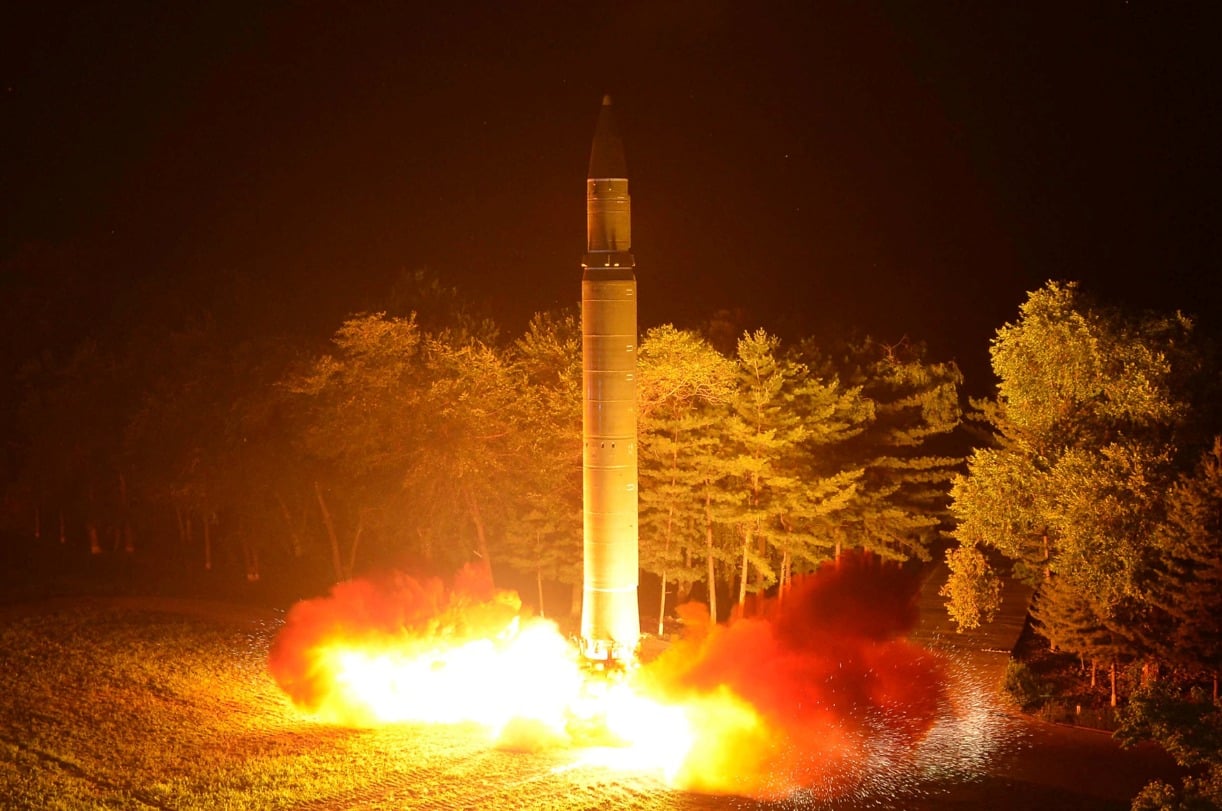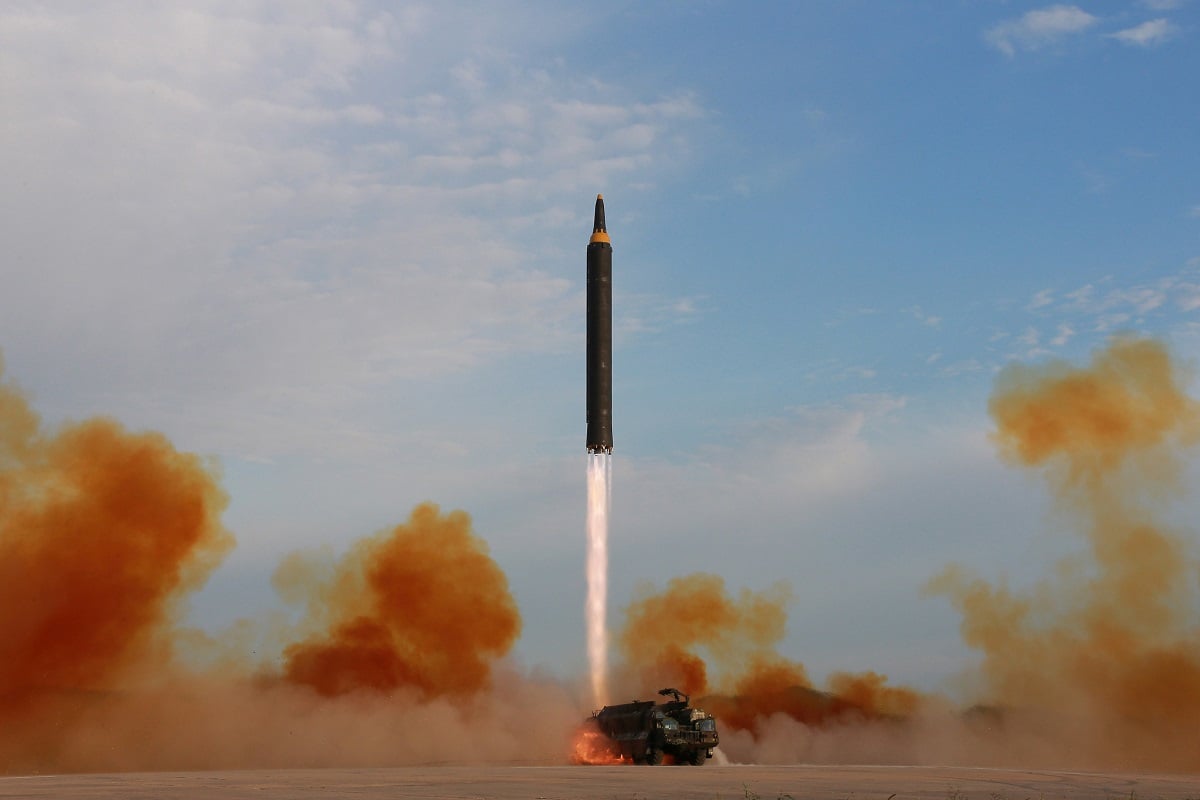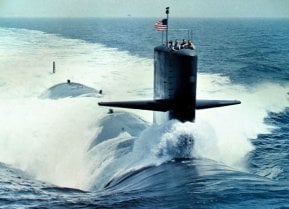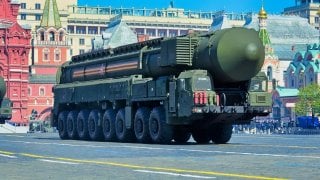Could Russia Help North Korea with Its Missile and Nuclear Programs?
Although North Korea has amassed a threatening nuclear arsenal, it still has significant gaps in its capabilities. The concern is that Russia could help Pyongyang close these gaps quickly.
North Korea and Russia: Towards Nuclear Irresponsibility: The burgeoning relationship between North Korea and Russia is much more than an opportunistic marriage resulting from Russia’s war in Ukraine. Before the war, North Korea had already made a strategic shift toward Russia, abandoning its goal of seeking normalization with the United States. Russia welcomed North Korea’s political support for the war and soon benefitted from its supply of ammunition and ballistic missiles. Because in the long run, neither side has what the other needs most, the alliance is probably doomed eventually to wither. Nevertheless, for now, it is leading to greater destruction in Ukraine and threatens to fuel an escalation of hostilities on the Korean Peninsula.
Kim Jong-un Turned to Russia Before It Invaded Ukraine
After the failed summit with President Trump in Hanoi in February 2019, Kim Jong-un reviewed and recast the North’s security policies.
By late 2021, Kim concluded that the United States would not allow his country or his regime to exist. He abandoned the thirty-year policy crafted by Kim Il-sung and continued by Kim Jong-il to normalize relations with Washington as a buffer against China and Russia. Convinced that the U.S. was in decline, he chose to link up again with China and Russia in their opposition to the U.S.-led global system.
This fundamental policy shift was made before Russia’s invasion on Feb. 24, 2022. Kim was prepared to support Russia politically and materially once the war started. During the past two years, North Korea has supplied Russia with ballistic missiles and more than 10,000 military containers that may have held millions of rounds of ammunition. These supplies have not only aided Russia’s success in Ukraine but also provided a testing ground for North Korea’s munitions industry as well as for its missiles, and possibly for its missile crews.
Already by July 2023, there were signs of strain between Pyongyang and Beijing over the North’s move toward Russia. Beijing does not favor Pyongyang’s support of Russia’s war in Ukraine nor with its greatly accelerated nuclear and missile programs. Although China’s foreign ministry has routinely criticized Washington for increasing tensions on the Korean Peninsula, it is now more common for Beijing to suggest that the North is equally at fault. Pyongyang, in turn, has increasingly made crystal clear its preference for Russia. Kim Jong-un’s messages to Putin and Xi Jinping vividly reflect that.
What Flows from Russia to North Korea?
Recent diplomatic engagement between Moscow and Pyongyang has been nothing short of staggering. Kim Jong-un received a personal tour of the Vostochny Cosmodrome near Vladivostok in September 2023 along with a summit with President Putin. Several high-level government officials have made state visits to each capital and in June 2024 Putin held a summit with Kim in Pyongyang. It was followed by a Treaty on the Comprehensive Strategic Partnership, similar in content to the previous 1961 Treaty of Cooperation. Article 4 of the new treaty states, “If either country falls into a state of war… the other shall provide military and other assistance with all means.”

Although Russia at first soft-pedaled the military aspects of the treaty, recently Russian analysts emphasized that it isn’t just a piece of paper, but rather demonstrates, "the resolve of both countries to strengthen the cooperation in all areas, including the military-technical one."
Little is known of what Russia is providing North Korea in return for its massive military aid. Frequent flights by Russian military aircraft to the North suggest a steady stream of personnel and technical knowledge.
Although North Korea has amassed a threatening nuclear arsenal, it still has significant gaps in its capabilities. For example, North Korea has limited inventories of plutonium and tritium, the bomb fuels required for modern hydrogen bombs. The sophistication and miniaturization of its nuclear warheads are limited by having conducted only six nuclear tests to date, in comparison to 1,054 for the United States, 715 for the Soviet Union, and forty-five for China. North Korea has demonstrated rocket technologies of the intercontinental ballistic missile (ICBM) class to reach the American mainland. However, none of their ICBMs have been launched in normal trajectories, and all have been lofted to stay close to the Korean Peninsula, which is required for obtaining crucial guidance and re-entry data.
The concern is that Russia could help North Korea close these gaps quickly. Such assistance would violate Russia’s commitments to the Nuclear Nonproliferation Treaty (NPT). Before the annexation of Crimea in 2014 and the invasion of Ukraine in 2022, the Soviet Union/Russia had been a responsible NPT state and supportive member of the International Atomic Energy Agency (IAEA). Unfortunately, with its invasion of Ukraine, Russia has turned rouge.

It has threatened the use of nuclear weapons in Ukraine and surrounding states. It has violated the nonproliferation security assurances it extended to Ukraine when it signed the 1994 Budapest Memorandum to respect Ukraine’s sovereignty in return for sending Soviet-era nuclear weapons back to Moscow. It committed state-sponsored nuclear terrorism with its transgression of the Chornobyl nuclear accident exclusion area and its occupation of the Zaporizhzhia Nuclear Power Plants at gunpoint. Moreover, it has greatly set back the expansion of global nuclear power with its stranglehold on the world’s nuclear fuel supply chain.
In other words, Russia has turned into an irresponsible nuclear state on which the rest of the world can no longer depend to uphold nuclear nonproliferation norms. That is the overriding near-term concern of the new Russia-North Korea relationship.
About the Author:
Siegfried S. Hecker is a professor of practice at the Middlebury Institute of International Studies at Monterey and Texas A&M University. He is director emeritus of the Los Alamos National Laboratory and professor emeritus of Stanford University. He is the author (with collaborating author Elliot Serbin) of Hinge Points: An Inside Look at North Korea’s Nuclear Program (Stanford University Press, January 2023) and editor of Doomed to Cooperate: How American and Russian Scientists Joined Forces to Avert Some of the Greatest Post-Cold War Nuclear Dangers, Los Alamos Historical Society, June 2016.
Image Credits: The main image is from Shutterstock. All others are DPRK State Media.


